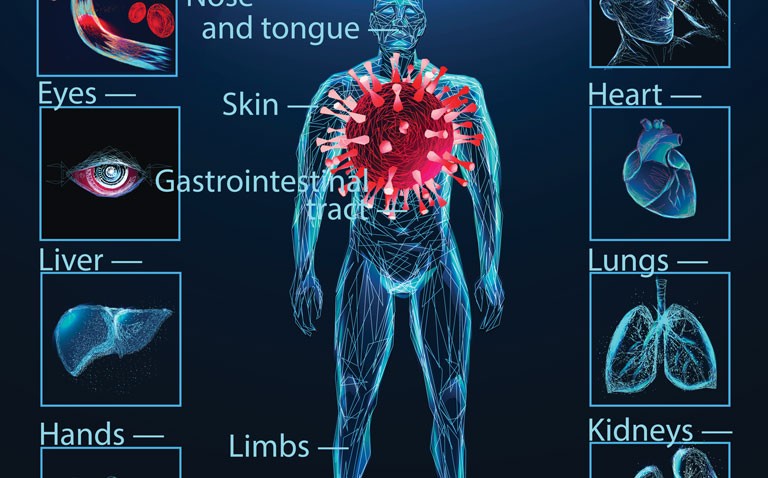Among hospitalised patients, virtually half had COVID-19 complications, and which are likely to impact on future health services.
The mortality rate from infection with COVID-19 is high at approximately 26% and it has also become recognised that COVID-19 complications can occur in a large number of patients. Information on the incidence and type of COVID-19 complications is important for both patients and healthcare providers. For instance, patients need to know the likely time course of any complications whereas healthcare providers require this data to help with resource allocation and long-term planning for the delivery of services. Moreover, a sizeable number of patients with COVID-19 are admitted to intensive care units and while mortality is widely used as an outcome measure in many of the COVID-19 clinical trials, it fails to adequately capture the fact that survivors experience significant morbidity upon discharge.
A better understanding of the range and incidence of COVID-19 complications among those who are critically ill with the virus, is therefore critical to an assessment of the long-term burden on healthcare systems. In an effort to determine the range and prevalence of immediate complications of infection with COVID-19, a team from the Centre for Medical Informatics, Usher Institute, Edinburgh, Scotland, undertook a prospective, multi-centre cohort study in 302 UK which included adults, aged 19 years and older, with confirmed COVID-19 and admitted to hospital. Data was captured upon admission and after days 1, 3 and 9 and at discharge or the patient’s status after 28 days and included demographics and co-morbidities. The team set the primary outcome as the incidence of in-hospital complications and which was defined as organ-specific diagnoses occurring alone or in addition to any hallmarks of COVID-19 illness.
Findings
A total of 75,276 patients were included in the analysis with a mean age of 71.1 years (56% male) and with the majority (73.5%) being of white ethnicity. The existence of one or more comorbidities was present in 81% of participants. and the overall rate of COVID-19 complications was 49.7%. The most common complications reported affected the renal system (24.3%), systemic effects (16.3%), gastrointestinal (10.8%), cardiovascular (12.3%), neurological (4.3%) and respiratory (18.4%). Males aged 60 years and over, suffered the highest rate of complications (54.5%) although COVID-19 complications were common across all demographics. For example, among patients aged 19–29 years and without any comorbidities, 21.1% experienced at least one complication, whereas in those aged 50 years and older, the complications occurred in 51.3% of patients. Interestingly, among patients who survived 28 days from first symptoms to discharge, 44% suffered complications and 26.6% of whom, had a worse ability to self-care than prior to their illness.
In discussing their findings, the authors noted the high level of complications experienced by survivors. The most common were renal and in particular acute kidney injury which is known to be associated with substantial long-term morbidity. They also remarked upon how COVID-19 complications had developed in young and previously healthy individuals and how such complications are known to have a negative impact on long-term morbidity.
Citation
Drake TM et al. Characterisation of in-hospital complications associated with COVID-19 using the ISARIC WHO Clinical Characterisation Protocol UK: a prospective, multicentre cohort study. Lancet 2021.










